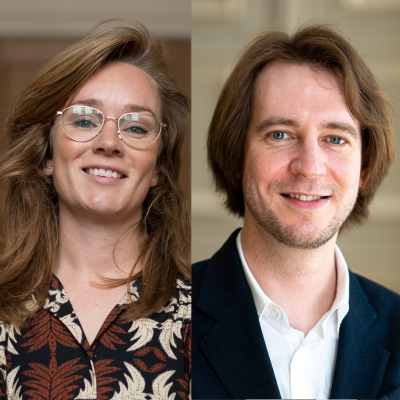Dr Michelle Bruijn and Dr Kostia Gorobets receive Veni grant from Dutch Research Council

Dr Michelle Bruijn and Dr Kostia Gorobets have been awarded a Veni grant by the Dutch Research Council (NWO). Bruijn will spend the grant on research into protection against evictions. Gorobets will use the awarded amount for legal philosophical research on an alternative version of international law in Russia.
PROHOUSE
Thousands of people are evicted annually in the Netherlands, with devastating impacts on individuals and society. While national courts have a key task in protecting human rights, legal research shows that international human rights law demands stronger protection from eviction than courts typically provide.
Yet, the extent to which Dutch courts protect against eviction remains unclear. Prior research only focuses on private law and tenant housing rights and overlooks the equally important property rights, evictions of other occupiers (e.g., homeowners, squatters), and evictions initiated by local governments (administrative law evictions).
In her research project PROHOUSE, Bruijn assesses and explains the extent to which Dutch courts protect citizens from eviction and the impact the rights to housing and property have on judicial decision-making in Dutch eviction litigation. For this, she uses innovative machine learning techniques for identifying and analyzing eviction judgments and measuring impact.
Alternative Legalities: How the Russian Invasion of Ukraine Fractures International Law
Russia justifies the invasion of Ukraine not by pointing at specific rules and treaties, but through historical examples and myths. An appeal to NATO expansion and condemnation of Western hypocrisy are accompanied by references to Russia’s sovereignty, its glorious past and the uniqueness of Russian civilization.
This constructs a parallel legal reality in which rules no longer play a central role and which infringes on international law as a universal system of norms for the conduct of states. Gorobets’ legal philosophical research project will analyze this alternative version of international law and its imperialistic potential. The first step is focusing on the structure of Russia’s alternative legality by means of legal philosophy and methods of narrative analysis.
The application process
The Veni is a person-linked scientific fellowship, is part of the NWO Talent Program, and is aimed at researchers who have recently received their PhDs. When applying for a Veni grant, researchers submit a preliminary proposal in which they must be able to explain their research in 100 words. In the second round, they may submit a full research proposal and pitch their research to a panel in five minutes.
Researchers awarded the fellowship can receive up to 320,000 euros with which to further develop their research ideas over the next three years. This year, 1308 applications were submitted and 174 researchers were eventually awarded grants.
This article was published by the Faculty of Law.
More news
-
08 December 2025
Colourful Characters: Bert Röling
